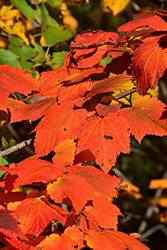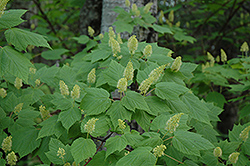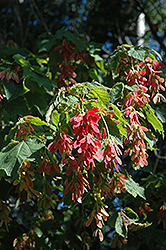It's all about ...
plants

Height: 20 feet
Spread: 15 feet
Sunlight:
![]()
![]()
![]()
Hardiness Zone: 2b
Description:
One of the most delicate of woodland maples, noted for its compact size and radiant fall colors; extremely particular about siting and will die in poorly drained or dry clay soils; best used in naturalized settings
Ornamental Features
Mountain Maple has forest green deciduous foliage on a tree with a round habit of growth. The lobed leaves turn an outstanding red in the fall.
Landscape Attributes
Mountain Maple is an open deciduous tree with a more or less rounded form. Its average texture blends into the landscape, but can be balanced by one or two finer or coarser trees or shrubs for an effective composition.
This is a relatively low maintenance tree, and should only be pruned in summer after the leaves have fully developed, as it may 'bleed' sap if pruned in late winter or early spring. It has no significant negative characteristics.
Mountain Maple is recommended for the following landscape applications;
- General Garden Use
- Naturalizing And Woodland Gardens
Planting & Growing
Mountain Maple will grow to be about 20 feet tall at maturity, with a spread of 15 feet. It has a low canopy with a typical clearance of 2 feet from the ground, and is suitable for planting under power lines. It grows at a slow rate, and under ideal conditions can be expected to live for 40 years or more.
This tree performs well in both full sun and full shade. It requires an evenly moist well-drained soil for optimal growth. It is not particular as to soil type, but has a definite preference for acidic soils, and is subject to chlorosis (yellowing) of the foliage in alkaline soils. It is quite intolerant of urban pollution, therefore inner city or urban streetside plantings are best avoided, and will benefit from being planted in a relatively sheltered location. Consider applying a thick mulch around the root zone in winter to protect it in exposed locations or colder microclimates. This species is native to parts of North America.


